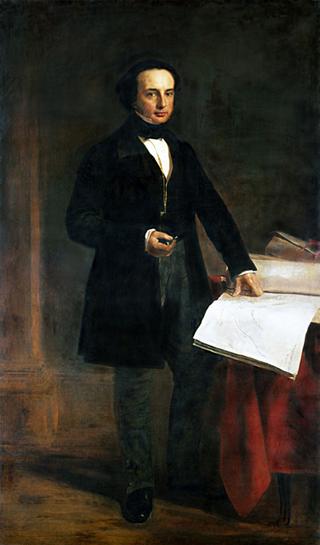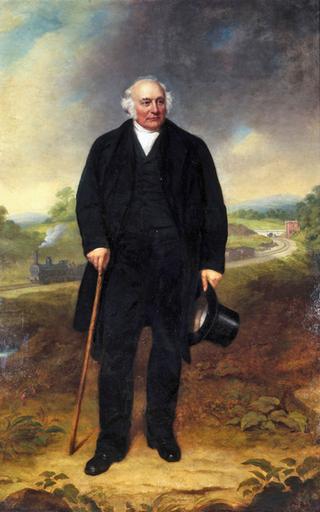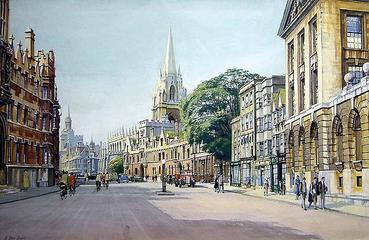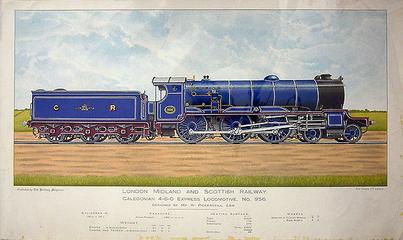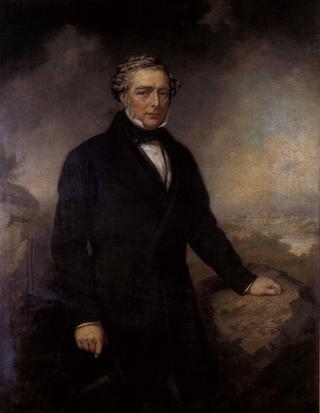
Second Class: The Parting
- Made:
- 1855
- artist:
- Abraham Solomon

Painting, oil on panel, Second Class: The Parting 'Thus part we rich in sorrow, Parting poor', by Abraham Solomon, 1855. Depicts passengers in a second class railway carriage. A woman, dressed in black widow’s clothes with a hood and bonnet covering her hair, is seated with her left arm around a boy sailor, clasping his right hand in hers. Facing them is a tearful young woman, holding a handkerchief to her face. There is a carpet bag and bundle of luggage on the seats alongside. Seated behind them are a bearded sailor, wearing an earring and straw hat, and a woman with a colourful bonnet. On the wall of the carriage are advertisements for sea passages to Australia, gold digging equipment and emigrants’ outfits. Through the carriage window is a port with ships’ masts. Framed and glazed. Also known as The Departure (Second Class).
Abraham Solomon’s 1854 painting, Second Class, The Parting shows the sparse interior of a second-class railway compartment as a teenaged boy prepares to leave his widowed mother and sister. Advertisements on the walls and the shipping seen through the window suggest that the boy is bound for Australia, which in the 1850s was in the grip of a gold rush.
In Second Class the family must share their grief with a sailor and his partner, both clearly old hands at farewells and not particularly sympathetic to this sad scene.
At the Royal Academy in 1854, this painting was exhibited alongside another showing passengers in First Class, a subject Solomon returned to the following year. This painting is also known as Second Class: The Departure and Second Class: The Parting, 'Thus part we rich in sorrow, Parting poor'. The quotation is from William Shakespeare's Timon of Athens.
Details
- Category:
- Pictorial Collection (Railway)
- Object Number:
- 1975-8509
- Materials:
- oil on canvas
- Measurements:
-
overall: 870 mm x 1150 mm x , ,
frame: 33.8583 x 46.063 x 6 in.; 860 x 1170 x 152.4 mm
- type:
- painting and oil painting
